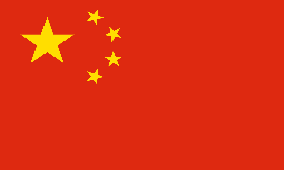
China's Guangzhou city to subsidise NEV sector

The auto industry is one of the main manufacturing sectors in Guangzhou's economy, with the city's automobile production accounting for 10.6pc of the country's total output. Guangzhou will also offer a Yn3,000/unit subsidy to consumers of fossil fuel vehicles.
NEV sales in Guangzhou totalled 68,099 in 2019, only behind Shanghai and Beijing in volumes, according to a report from Guangzhou's academy of social sciences.
Local authorities in Foshan city, also in south China's Guangdong province, started in February providing Yn2,000-5,000/unit subsidies to new car buyers. Guangdong's auto output reached 3.11mn units in 2019, accounting for 12.2pc of China's total production.
The coronavirus outbreakhas taken a toll on China's NEV market, with domestic production and sales forecast to fall in the first quarter.
The Chinese government was considering a delay in removing subsidies on NEVs, said the country's industry and information technology minister Miao Wei at a state council press conference on 20 January. Miao also said at an automobile industry conference that China will not significantly reduce subsidies on NEVs on 1 July after making cuts in 2019.
China produced 40,000 NEVs in January, down by 55pc from January 2019. Sales fell by 54pc from a year earlier to 44,000.
Demand for battery metals, such as cobalt, from the power battery sector is expected to increase in March, as local governments in China provide aid to support the NEV sector, according to market participants.


Trump weighs using $2 billion in CHIPS Act funding for critical minerals

Codelco cuts 2025 copper forecast after El Teniente mine collapse

Electra converts debt, launches $30M raise to jumpstart stalled cobalt refinery

Barrick’s Reko Diq in line for $410M ADB backing

Abcourt readies Sleeping Giant mill to pour first gold since 2014

Nevada army depot to serve as base for first US strategic minerals stockpile

SQM boosts lithium supply plans as prices flick higher

Viridis unveils 200Mt initial reserve for Brazil rare earth project

Tailings could meet much of US critical mineral demand – study

Kyrgyzstan kicks off underground gold mining at Kumtor

Kyrgyzstan kicks off underground gold mining at Kumtor

KoBold Metals granted lithium exploration rights in Congo

Freeport Indonesia to wrap up Gresik plant repairs by early September

Energy Fuels soars on Vulcan Elements partnership

Northern Dynasty sticks to proposal in battle to lift Pebble mine veto

Giustra-backed mining firm teams up with informal miners in Colombia

Critical Metals signs agreement to supply rare earth to US government-funded facility

China extends rare earth controls to imported material

Galan Lithium proceeds with $13M financing for Argentina project

Kyrgyzstan kicks off underground gold mining at Kumtor

Freeport Indonesia to wrap up Gresik plant repairs by early September

Energy Fuels soars on Vulcan Elements partnership

Northern Dynasty sticks to proposal in battle to lift Pebble mine veto

Giustra-backed mining firm teams up with informal miners in Colombia

Critical Metals signs agreement to supply rare earth to US government-funded facility

China extends rare earth controls to imported material

Galan Lithium proceeds with $13M financing for Argentina project

Silver price touches $39 as market weighs rate cut outlook

















